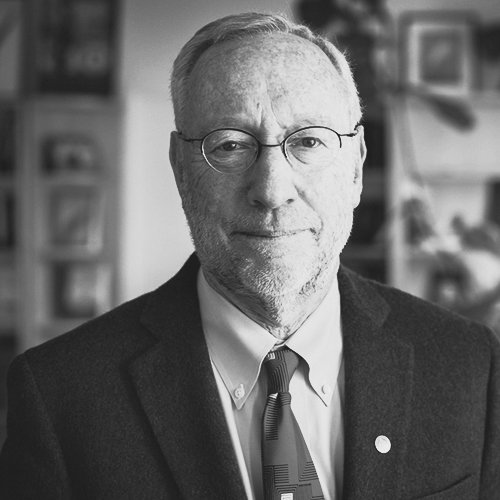Dr. Diego Diel is an Associate Professor at Cornell’s College of Veterinary Medicine, where his research focuses on the molecular mechanisms underlying virus-host interactions, and more specifically on the mechanisms underlying viral immune evasion that contribute to virus virulence and disease pathogenesis. Dr. Diel’s goal in studying virus-host interactions is to translate the fundamental knowledge generated with this research into improved vaccines and/or vaccine vectors for disease prevention and control.
Event Overview
What You'll Learn
- How Cornell used science and data modeling to inform decision making
- Assumptions and challenges in creating a real-world data model and robust testing program for public health when little empiric data are yet available
- The benefits and limitations of using experiences gained to refine models and strategies
- Lessons learned and next steps in managing the evolving challenges presented by the pandemic
Speakers
Gary Koretzky is the Vice Provost for Academic Integration at Cornell University, a Professor in the Department of Medicine at Weill Cornell Medicine, and an Adjunct Professor in the Department of Microbiology and Immunology at the College of Veterinary Medicine at Cornell University. Prior to his current position, Dr. Koretzky served as the Vice Dean for Research at Weill Cornell Medical College and as the Dean of Weill Graduate School. As the Vice Provost for Academic Integration, he strengthens the critical connections between the Cornell campuses in Ithaca and New York City through initiatives that further facilitate and nurture research collaborations and integrate academic units. Dr. Koretzky served as the Editor-in-Chief of Immunological Reviews from 2002-2012 and is currently a member of the Council of the American Association of Immunologists. He served as the President of the American Society of Clinical Investigation and Councilor of the Association of American Physicians, and he is a Fellow of the American Association for the Advancement of Science, a member of the National Academy of Medicine, and a Fellow of the American Academy of Arts & Sciences. Dr. Koretzky received his A.B. from Cornell University (‘78) and obtained his M.D. and Ph.D. (Immunology) degrees at the University of Pennsylvania (‘84).
Michael I. Kotlikoff, Professor of Molecular Physiology, became the 16th Provost of Cornell on August 1, 2015. As the university’s Chief Academic Officer, Chief Budgeting Officer, and First Deputy Officer to the President, Dr. Kotlikoff works to enhance the university’s excellence in teaching, scholarship, and outreach. His signature initiative, Radical Collaboration, recruits faculty and supports infrastructure in seven key multidisciplinary areas: nanoscale science and microsystems engineering; genome biology; data science; sustainability; digital agriculture; infection biology; and the critical inquiry into values, imagination, and culture (CIVIC). Dr. Kotlikoff was previously the Austin O. Hooey Dean of Veterinary Medicine at Cornell, where he enhanced programs in education, animal healthcare, and research, and launched an $87 million capital project to upgrade infrastructure and teaching facilities, thus enabling an increase in the pre-clinical class size. His research laboratory, continuously funded by the National Institutes of Health for over 30 years, is internationally recognized in the area of cardiovascular biology and heart repair.
Peter Frazier is an Associate Professor at Cornell’s School of Operations Research and Information Engineering. His research is in sequential decision making under uncertainty, optimal methods for collecting information, and machine learning, with a focus on applications in simulation, e-commerce, medicine, and biology. Dr. Frazier is the recipient of a CAREER Award from the National Science Foundation and a Young Investigator Award from the Air Force Office of Scientific Research. He is currently on leave at Uber, where he is a Staff Data Scientist and Data Science Manager. Dr. Frazier received a B.S. in Physics and Engineering/Applied Science from the California Institute of Technology in 2000, after which he spent several years in industry as a software engineer, working for two different startup companies and for the Teradata division of NCR. In 2005, he entered graduate school in the Department of Operations Research & Financial Engineering at Princeton University, receiving an M.A. in 2007 and a Ph.D. in 2009. Dr. Frazier joined the faculty at Cornell in 2009.
Prior to joining Cornell Health, Sharon McMullen served as Director of University Health Services at the University of Notre Dame. Before that, she served as the founding director of Campus Health Initiatives at the University of Pennsylvania, where she held several positions, including as a registered public health nurse. Ms. McMullen was selected as a 2019 Fellow of the American College Health Association, where she holds leadership positions including Secretary of the Emerging Public Health Threats and Emergency Response Coalition, rising co-chair of the Vaccine-Preventable Diseases Advisory Committee, and member of the College Health and Wellness Consulting Group. Among her professional interests, Ms. McMullen cites using data to advance public health, promoting vaccines for the common good, and using the power of policy to shape health.

Dr. Diego Diel is an Associate Professor at Cornell’s College of Veterinary Medicine, where his research focuses on the molecular mechanisms underlying virus-host interactions, and more specifically on the mechanisms underlying viral immune evasion that contribute to virus virulence and disease pathogenesis. Dr. Diel’s goal in studying virus-host interactions is to translate the fundamental knowledge generated with this research into improved vaccines and/or vaccine vectors for disease prevention and control.

Gary Koretzky is the Vice Provost for Academic Integration at Cornell University, a Professor in the Department of Medicine at Weill Cornell Medicine, and an Adjunct Professor in the Department of Microbiology and Immunology at the College of Veterinary Medicine at Cornell University. Prior to his current position, Dr. Koretzky served as the Vice Dean for Research at Weill Cornell Medical College and as the Dean of Weill Graduate School. As the Vice Provost for Academic Integration, he strengthens the critical connections between the Cornell campuses in Ithaca and New York City through initiatives that further facilitate and nurture research collaborations and integrate academic units. Dr. Koretzky served as the Editor-in-Chief of Immunological Reviews from 2002-2012 and is currently a member of the Council of the American Association of Immunologists. He served as the President of the American Society of Clinical Investigation and Councilor of the Association of American Physicians, and he is a Fellow of the American Association for the Advancement of Science, a member of the National Academy of Medicine, and a Fellow of the American Academy of Arts & Sciences. Dr. Koretzky received his A.B. from Cornell University (‘78) and obtained his M.D. and Ph.D. (Immunology) degrees at the University of Pennsylvania (‘84).

Michael I. Kotlikoff, Professor of Molecular Physiology, became the 16th Provost of Cornell on August 1, 2015. As the university’s Chief Academic Officer, Chief Budgeting Officer, and First Deputy Officer to the President, Dr. Kotlikoff works to enhance the university’s excellence in teaching, scholarship, and outreach. His signature initiative, Radical Collaboration, recruits faculty and supports infrastructure in seven key multidisciplinary areas: nanoscale science and microsystems engineering; genome biology; data science; sustainability; digital agriculture; infection biology; and the critical inquiry into values, imagination, and culture (CIVIC). Dr. Kotlikoff was previously the Austin O. Hooey Dean of Veterinary Medicine at Cornell, where he enhanced programs in education, animal healthcare, and research, and launched an $87 million capital project to upgrade infrastructure and teaching facilities, thus enabling an increase in the pre-clinical class size. His research laboratory, continuously funded by the National Institutes of Health for over 30 years, is internationally recognized in the area of cardiovascular biology and heart repair.

Peter Frazier is an Associate Professor at Cornell’s School of Operations Research and Information Engineering. His research is in sequential decision making under uncertainty, optimal methods for collecting information, and machine learning, with a focus on applications in simulation, e-commerce, medicine, and biology. Dr. Frazier is the recipient of a CAREER Award from the National Science Foundation and a Young Investigator Award from the Air Force Office of Scientific Research. He is currently on leave at Uber, where he is a Staff Data Scientist and Data Science Manager. Dr. Frazier received a B.S. in Physics and Engineering/Applied Science from the California Institute of Technology in 2000, after which he spent several years in industry as a software engineer, working for two different startup companies and for the Teradata division of NCR. In 2005, he entered graduate school in the Department of Operations Research & Financial Engineering at Princeton University, receiving an M.A. in 2007 and a Ph.D. in 2009. Dr. Frazier joined the faculty at Cornell in 2009.

Prior to joining Cornell Health, Sharon McMullen served as Director of University Health Services at the University of Notre Dame. Before that, she served as the founding director of Campus Health Initiatives at the University of Pennsylvania, where she held several positions, including as a registered public health nurse. Ms. McMullen was selected as a 2019 Fellow of the American College Health Association, where she holds leadership positions including Secretary of the Emerging Public Health Threats and Emergency Response Coalition, rising co-chair of the Vaccine-Preventable Diseases Advisory Committee, and member of the College Health and Wellness Consulting Group. Among her professional interests, Ms. McMullen cites using data to advance public health, promoting vaccines for the common good, and using the power of policy to shape health.
- View slide #1
- View slide #2
- View slide #3
- View slide #4
- View slide #5
View Keynote by completing the form below.
You're Registered!
